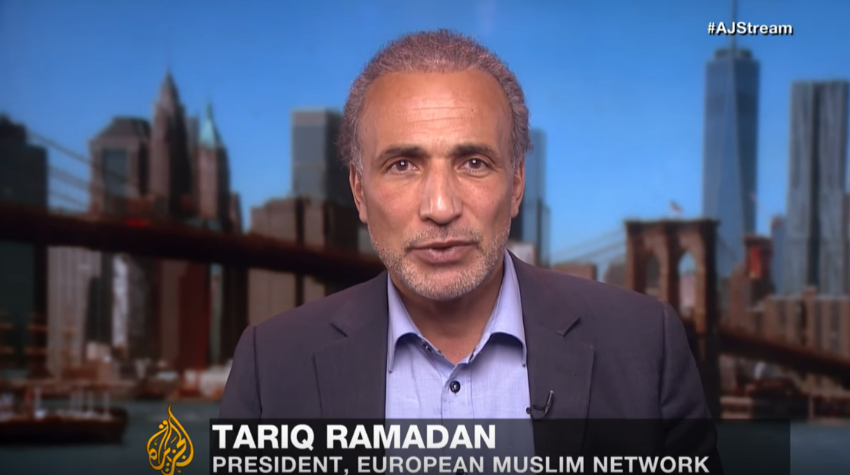The presence of millions of new citizens is perceived as a potential threat in Europe. Far from being driven by some negative perceptions, mistrust and fears, it is necessary to come back to a deep, rational and reasonable debate, says prof. Dr Tariq Ramadan. Academic can – and must – help to shape the debate. Ramadan is visiting Professor in Identity and Citizenship at Erasmus University Rotterdam. On Friday 9th of November, he will hold his inaugural lecture ?Citizenship and Identity: old terminology and new challenges’.
The European societies are facing new and very complex challenges. The presence of millions of new citizens mainly with a Muslim background is perceived as a potential threat: what about our roots, our legacy, our identity and our future? What do they want? To adapt themselves, to integrate or to silently colonised the European countries? Far from being driven by some negative perceptions, mistrust and fears, it is necessary to come back to a deep, rational and reasonable debate, argues Ramadan. This is where the academic can – and must – help to shape the debate with in-depth, more rationality but also with no compromise as to the essential principles or overwhelming optimism.
We need a clear and realistic approach: to be able to achieve that, it is important to return to the old concepts – such as citizenship and national identity – and to try to study their past and current meanings (or uses) in order to try to draw the outlines of renewed understandings while setting a clear framework related to the conditions of citizenship. This is the first step helping us to talk about the commonalities and, from there, to tackle the issues of identities, diversity and multiculturalism. Between the worst case scenarios and the idealistic projections, what approach can we propose from an academic viewpoint tacking into account what has already been said while trying to open new channels and to propose creative ways to deal with these issues.
Prof.dr. Tariq Ramadan is Visiting Professor in Identity and Citizenship at Erasmus University Rotterdam, with effect from 1 January 2007. Dr Ramadan will hold the post for a period of two years. The chair is shared by the Faculty of Social Sciences and the Faculty of History and Arts of Erasmus University Rotterdam, and was created for four years on the initiative of Rotterdam city council.
Professor Tariq Ramadan (46) is a philosopher and Arabist. He is particularly well known for his work in philosophy and Islamic studies, where he has made a special study of the recent growth of Islamic communities in Europe. Professor Ramadan is a strong advocate of full participation by Muslims in European society and is known for his critical stance towards Muslims and non-Muslims alike. His message that Muslims can and must be good, fully-participating European citizens has made him one of the leading voices of contemporary Islam and an example to many young people wrestling with questions of identity and citizenship.
The new Visiting Professor is a Swiss citizen with an Egyptian background who partly grew up in France. He took a doctorate from the University of Genève in 1998. Between 1997 and 2004, he was attached to the Department of Philosophy at the University of Fribourg, Switzerland. Dr Ramadan holds numerous academic posts, including that of Visiting Fellow at St Anthony’s College, Oxford, which he has held since 2005.
See also: www.eur.nl/fsw/ramadan
Source : Erasmus University



![PALEXPO : Democratic Engagement & Justice for Palestinians [08/07/2017]](https://tariqramadan.com/english/wp-content/uploads/sites/9/2017/07/Palexpo.png)
![Bristol Festival of Ideas : Conversation with Julian Baggini [24/05/2017]](https://tariqramadan.com/english/wp-content/uploads/sites/9/2017/06/bristol.png)
![Interview on BBC Radio Ulster [06/06/2017]](https://tariqramadan.com/english/wp-content/uploads/sites/9/2017/06/p03nnqlv.jpg)
![Interview on BBC 4 : What do the London attacks have to do with Islam? What is the Muslims’ responsibility?[06/06/2017]](https://tariqramadan.com/english/wp-content/uploads/sites/9/2017/06/bbc.jpg)

